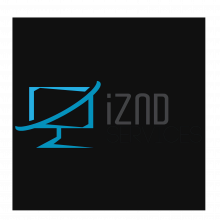
There are 16 Companies in Malaysia
that provide Hosting and Cloud Services!
Malaysia is strategically situated with easy accessibility to other countries and has a robust infrastructure, economic stability. ICT has been identified as the key growth sector in the country that grows at an Annual Average Growth Rate (AAGR) 9.0 percent over a period of 7 years. The ICT sector is one of the most productive in Malaysia, and besides boosting digital transformation, it is contributing about 13.8% to the total GDP.
Discover Top IT Companies in Malaysia specialized in Hosting and Cloud and other related services. Find the best IT service providers for your projects.
Entrepreneurs often struggle to differentiate between cloud and hosted services, which may seem similar but differ in processes. Understanding these differences can help choose the right for your business. Pick the right home for your website involves considering technical aspects, reliability, cost, and customer support and other factors.
There are more than 330,000 web hosting providers all around the world, and this number is expected to grow as the Internet expands. Even with the fierce competition, new providers continue to enter the market. At the same time, data reveals that approximately 60% of all corporate data is now stored in the cloud. It has also witnessed a 10% increase compared to the previous year, 2021.
Handpicked companies • No obligation to hire • 100% risk-free
Featured Companies in Malaysia
This month, the following Hosting and Cloud companies managed to provide an outstanding service and support. It's worth taking a look.

Kuala Lumpur, Malaysia Head office in: United States
SDLC Corp is a global IT solutions provider offering custom software, apps, blockchain, AI, Odoo, Salesforce, and game development services.

Kuala Lumpur, Malaysia Head office in: United States
Access the Top 1% Tech Talent | 1500+ In-House Developers | Trusted by Fortune 500 Companies
Developer Bazaar Technologies is a Top-Ranked Mobile App & Web Development Company, specializing in transforming ideas into stunning realities.
Explore Top Hosting and Cloud Companies in Malaysia

TechGropse Pvt. Ltd. Verified Company
Kuala Lumpur, Malaysia Head office in: United Arab Emirates
Techgropse is a leading Mobile App and Web Development Company, dedicated to turning innovative ideas into remarkable digital solutions. 500+ Clients

Win-Pro Consultancy Pte Ltd Verified Company
Johor Bahru, Malaysia Head office in: Singapore
Since 1993, Win-Pro is a leading outsourcing IT support, IT consulting, IT solution and IT managed services provider company in Singapore and Malaysia

Dirayaah Smart Technologies Verified Company
Petaling Jaya, Malaysia Head office in: Saudi Arabia
Dirayaah Smart Technologies™ Paves The Way For Organizations To Expand Their Abilities To Stand Out Through Developing Advanced Software Solutions.
Innovative IT solutions provider specializing in SaaS, IoT, and cloud infrastructure for businesses worldwide.

Persistent Systems Verified Company
Selangor Darul Ehsan, Malaysia Head office in: India
See Beyond, Rise Above
Based in Cyberjaya, Malaysia specialize in delivering potent creative design, video production, and digital marketing services that elevate brands
Laurea People’s Signature is a MarTech agency delivering AI-powered digital marketing, branding, web, and e-commerce solutions for B2B brands.
Partner with PowTech for staff augmentation, managed services, and development expertise to drive your business forward efficiently and effectively.

RSM Singapore Verified Company
Kuala Lumpur, Malaysia Head office in: Singapore
RSM Stone Forest provides a comprehensive suite of business solutions to support your growth in Singapore and globally.
OI is a recognized premium provider of comprehensive online business solutions & services for companies in Malaysia. Our mission is to provide tai...
We place you at the center of international networks to advance your strategic interests.
Your Digital Transformation Partner
Filter Hosting and Cloud Companies in Malaysia by Cities
Find the right tech company near you or from a specific city. Some of the best companies might be located in smaller cities.
Find more Hosting and Cloud companies around the world
TechBehemoths is the world's most advanced and user-friendly platform to match IT Companies with real clients without hustle.
The IT Industry in Malaysia: General Portrait
Malaysia is strategically situated with easy accessibility to other countries and has a robust infrastructure and economic stability. ICT has been identified as the key growth sector in the country that grows at an Annual Average Growth Rate (AAGR) of 9.0% over a period of 7 years. The ICT sector is one of the most productive in Malaysia, and besides boosting digital transformation, it is contributing about 13.8% to the total GDP.
Malaysia has always been a popular destination for U.S. ICT companies for their global market expansion. Some of the significant U.S. companies that are well-established in Malaysia are IBM, HP, Intel, Google, Amazon, and many others. Malaysia has a holistic digital ecosystem and a complete ICT support system for U.S. businesses.
At the same time, according to Markus Monnikendam from Lizard Global, a leading IT company from Malaysia, we can say that following a stronger-than-expected rebound of 7.8 percent last year, the Central Bank of Malaysia projects economic growth of between 4% and 5% in 2023, which will help Malaysia avoid a recession. The recovery is widespread across industries and businesses. Since the reopening of international borders, recovery has become more established. Businesses of all sizes and in all industries saw an increase in sales as compared to the same period before the pandemic. But when it comes to sales growth, big businesses continue to dominate.
Why You Should Work With Malaysian IT Companies
Malaysia is a great outsourcing opportunity for foreign companies, but it hosts numerous tech giants, which have educated the local digital community to implement those needed changes in business culture, project management, and prepared the skilled workforce in the IT industry.
For this reason, companies from Malaysia are more visible and considered a regional force in the IT industry, making good competition for Indonesia, the Philippines, and even India.
In addition to this, Markus Monnikendam, the Commercial Director Global of Lizard Global, mentions that in the upcoming years, Malaysia's growth will be centered on technology. Malaysia's much-awaited adoption of 5G technology is anticipated to have a substantial positive impact on the labor market because it will enhance the development of the web and generate an estimated 39,000 value-added jobs.
Why Outsource Software Development to Malaysia?
Malaysia is an attractive outsourcing destination known for offshoring services in software development and BPO. It has a rapidly growing tech industry with thriving tech hubs, boasting a vibrant startup ecosystem, innovation centers, and accelerators. Various factors make Malaysia more appealing as an outsourcing location, including supportive government policies, the presence of tech cities, and high-quality education. Additionally, talented tech experts, high English proficiency, cost-effectiveness, and ease of doing business in Malaysia raise Malaysia’s position as a perfect destination for software development outsourcing.
What to Pay Attention to When Working With Malaysian IT Companies
Since it is expected that Malaysia will reach a digitalization level of 21% by 2025, local IT companies are struggling to invest in the training and education of young developers and designers that would bring potential growth to the Malaysian IT sector. However, following the current trends, Malaysian IT companies have a high chance of growing and providing higher-quality digital services.
Also, the layoffs in the IT industry. Markus Monnikendam from Lizard Global states that recent layoffs at IT firms show that even the biggest businesses can make misjudgments when attempting to strike a balance between staff planning and profitability.
How Reliable Are Malaysian IT Companies
On a regional background known for outsourcing destinations for international IT companies, Malaysian web and software agencies have a continuously improving position in terms of reliability. Both local demands for digital products and international opportunities gave Malaysian IT companies enough chances to reveal their potential and increase the trust level of clients.
How Does the Malaysian IT Industry Relate to the Neighboring Countries?
The tech evolution in the past 5 years has managed to create a competitive environment in the region, where each step towards evolution is considered an advantage. The Malaysian IT industry relies heavily on tech giants' investments that would to manage, keep, and educate young professionals. Nonetheless, the recent tax-friendly policies implemented by the Malaysian government managed to develop the IT industry and infrastructure, but it is still behind Indonesia and India.
How is the Business Climate for Opening a New IT Company as a Local Entrepreneur in Malaysia?
According to Ezra Tan from VeecoTech Web & Ecommerce Sdn Bhd, a local IT company from Malaysia, the demand is higher than the supply. However, IT talent is minimal, and companies are competing aggressively to recruit talent, which is one of the main struggles for new IT companies that have to compete with bigger market players. This means that when opening an IT company in Malaysia, the entrepreneur should first look for skilled professionals due to high competitiveness, and only later be concerned about incoming projects.
Moreover, Markus Monnikendam states that Malaysia, a developing nation, has been attempting to diversify its economy to reduce its reliance on natural resources and move towards a more knowledge-based economy. Kuala Lumpur (KL) is ranked as the third best startup ecosystem in Southeast Asia, behind Singapore and Jakarta, in Startup Genome's 2020 Global Startup Ecosystem Report. With startups in numerous industries, Malaysia has a broad startup environment. However, e-commerce, fintech, and healthcare are the most promising industries.
How do Governmental Institutions Encourage the Development of the IT Sector?
Erza Tan also states that there are multiple grants that are being rolled out to encourage businesses to be more innovative and to assist small businesses to digitalize their businesses with special tax rebates as well. Some of these grants can be found at MDEC, or get more information about them on HSBC.
Also, according to the Commercial Director Global of Lizard Global, Markus Monnikendam, the Malaysian government created the MyDIGITAL program as part of the Malaysia Economy Digital Economy Blueprint to promote this broad-based ambition, embracing a national digital transformation. The government has goals to make Malaysia a high-income, digitally-driven nation and a regional leader in the digital economy by 2030, and this program is a part of those plans. Malaysia aims to strengthen its position as a regional data hub through the government's Cloud First plan under the MyDIGITAL framework, embracing investment in data centers.
Industry 4.0 represents a shift in the global economy of Malaysia, driven by technologies like AI, IoT, robotics, and big data analytics. It helps improve efficiency and competitiveness and is adopted by different countries, including Germany, the US, and China. Malaysia is leveraging Industry 4.0 to optimize its manufacturing industry, attract foreign investments, and foster tech innovations.
Kuala Lumpur & Penang - the Best Cities for IT Businesses, Locals Say
When asked about the best two places for IT businesses in Malaysia, Erza mentioned that Kuala Lumpur would be the best city for IT companies, as it has the best balance of having a bigger pool of talent and a bigger opportunity to do business with a wide range of local and MNC companies there. The next location would be Penang. A growing hub and one of the biggest contributors to the country's revenue.
But the list goes on, as Markus Monnikendam from Lizard Global places in the lists two other locations at the top of doing IT business in Malaysia: Cyberjaya and Iskandar Puteri.
- Cyberjaya - With 144,000 innovators and creators, 400 MSC-status organizations, including multinational corporations (MNCs), and more than 40 government offices and centers, the city is currently regarded as Malaysia's technological hub. It essentially acts as the foundation for successful technology companies and businesses.
- Iskandar Puteri - It is now a center for cutting-edge digital innovations. Iskandar NEXT, one of its initiatives, aims to create and deploy Fourth Industrial Revolution (4IR) technological ecosystems. The Blockchain Village at Medini (BVAM) and the Drone and Robotics Zone (DRZ) Iskandar, Malaysia's first drone and robotics hub, were both made possible as a result.
Is the Malaysian Talent Poll IT-driven?
The short answer - yes. The long answer, however, has a more detailed explanation. According to Lizard Global, when local talents move employers in 2023, local talent anticipates earning an increase of 20% to 30% in pay. Less than 20% salary increases will probably make it difficult for businesses to recruit top employees. Other financial perks, such as fuel or transportation allowances, food subsidies, and flexible yearly leave, are particularly effective for attracting talent while improving the entire employee experience. However, if there is one perk that we are aware of that employees value most, it is flexible scheduling.
This article was created together with prominent figures and professionals coming from reputable Malaysian IT Companies. Special credits: Erza Tan and Markus Monnikendam.
What is Hosting and Cloud and what are its benefits for your projects?
Entrepreneurs often struggle to differentiate between cloud and hosted services, which may seem similar but differ in processes. Understanding these differences can help choose the right for your business. Pick the right home for your website involves considering technical aspects, reliability, cost, and customer support and other factors.
There are more than 330,000 web hosting providers all around the world, and this number is expected to grow as the Internet expands. Even with the fierce competition, new providers continue to enter the market.
At the same time, data reveals that approximately 60% of all corporate data is now stored in the cloud. It has also witnessed a 10% increase compared to the previous year, 2021.
Cloud Services
Cloud services are computing services provided by third-party hosts through the internet and on-demand. They allow customers to access and utilize remote computing resources effortlessly. There are three main categories of cloud: Software as a service (SaaS), Platform as a service (PaaS), Infrastructure as a service (IaaS).
Benefits of Using Cloud-Based Services
Cloud services offer several advantages that are not available with hosted solutions:
-
IT Optimization: With cloud services, the provider is responsible for building and maintaining all the hardware, so your IT department doesn't have to manage servers or install and update software on individual computers. Additionally, the provider is responsible for ensuring security and resolving any problems that might come up.
-
Budget-friendly approach: Cloud services offer a cost-efficient approach where you only pay for what you use. There is no need to invest in hardware or purchase software licences that may end up being unused by your team.
-
Business system integration: To integrate various third-party cloud solutions, you can streamline workflows and enhance team collaboration and productivity. For instance integrating your cloud communications platform with a CRM. Doing so ensures employees have access to customer information before they answer incoming calls and automatically logs all calls into the CRM.
-
Increase agility and scalability: Cloud services let you make changes in just a few clicks, whether you need to shift workflows, add new features and functionality, or change the number of users.
-
Support AI, predictive analytics, and IoT: With your data in the cloud, you can easily apply these advanced technologies to improve efficiency, gain new insights, and future-proof your business.
-
Support remote workforces: The workforce can access cloud services anytime, anywhere, using any device, with just an internet connection and login credentials.
Hosting Services
Hosted services, much like cloud-based solutions, are managed by a third-party provider and accessed through the internet. With hosted solutions, the provider owns and maintains physical servers in a private location rather than relying on a public cloud. This allows the service to be accessed online without the need for installing hardware or software. Users typically access it through a virtual private network or remote desktop.
Benefits of Hosting Services
Hosted services offer some of the same advantages as cloud solution, including:
-
Remote access and the ability to integrate with certain other cloud solutions. Because the software and hardware are maintained by the provider, there's also less for IT to manage than with traditional computing solutions (but typically more than with cloud solutions).
-
Offers greater customization options compared to cloud services, depending on the setup and service agreement.
-
Provide more control over security protocols, which is particularly beneficial for companies operating in highly regulated industries.
To Sum Up
Cloud services are a more cost-effective option compared to hosting services. They are easier to set up, manage, and maintain. Although hosting services offer more control, they require additional IT work and often come at a higher price. However, it's important to analyze your specific business requirements before deciding on a hosting type. At the moment Techehemoths has almost 800 Hosting & Cloud service providers.
Take a look at their profiles and feel free to contact them, the smart filters will also help you, Moreover, you can submit your project and our team will hand-pick and send you the best matching service providers, and you will get free quotes in about 1-hour. Also, if you want to learn more about cloud and hosting services, check out our blog for additional information.








